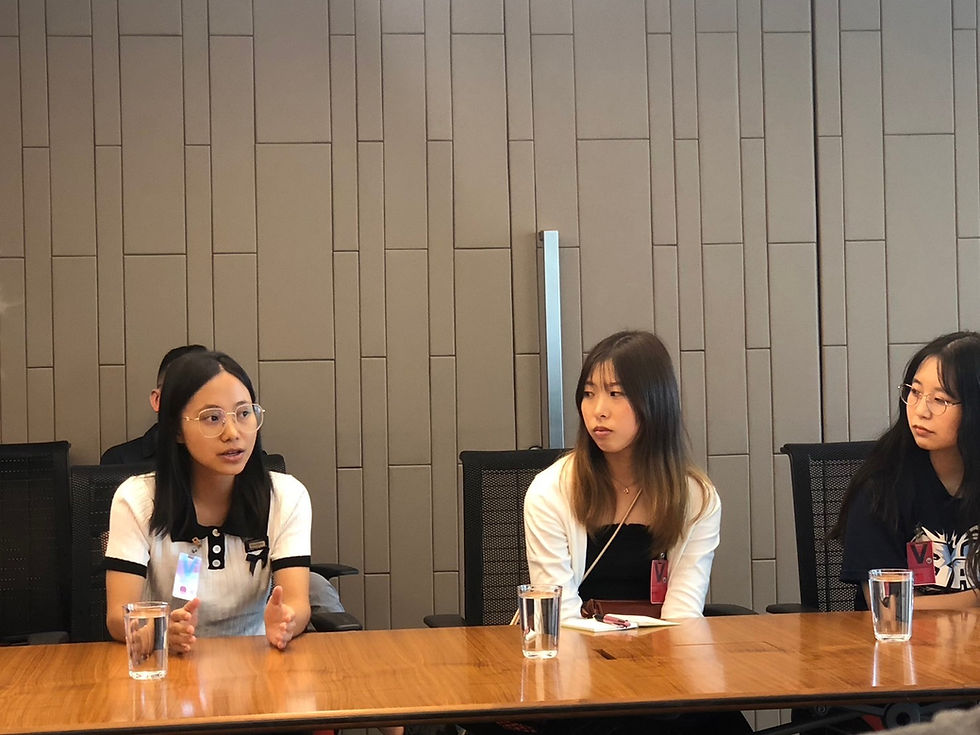Cross-cultural exchange and self-reflection
- Aug 22, 2024
- 3 min read

Each year, a Learning Across Borders (LAB) program brings together students from Japan and Myanmar to experience intercultural and experiential learning through travel.
This year, 8 Myanmar students from Parami University and 7 Japanese students from various universities in Japan joined the 10-day-long LAB program in Thailand. The program participants visited various academic institutions, civil society organizations, and cultural sites in Bangkok, Chiang Mai, and Mae Sot, where they were exposed to Thai and Myanmar cultures and the socioeconomic context of the diaspora community in Thailand.
The students gained new knowledge of various thematic issues and topics, but the most rewarding part of the program came from the cross-cultural experience shared among the participants and the insights they gained about themselves through self-reflection.
The program was led by LAB organizer Max Erdstein, who combined his passions for meditation and psychology to curate a program that created unique learning opportunities. "I often say that the most important person a participant meets on the program is themselves," said Max. "It is a bit ironic or paradoxical that we have to fly thousands of miles to meet ourselves, but being out of our usual routine and engaging with new friends from a different culture helps."
Being in a third culture with many new perspectives, both Myanmar and Japanese participants were encouraged to explore ways to relate to new experiences, from instances such as interacting with their roommates to reflecting on their prior stereotypes and prejudices. Every aspect of the LAB program, from content to logistics, involved cross-cultural learning, self-learning, memorable experiences and friendships.
Cross-cultural learning
Cross-cultural learning is essential for preparing students to succeed in a culturally diverse and interconnected world. Cross-cultural skills help students learn, understand, and incorporate differences in global learning and working environments.
"When it comes to speaking in English, most Japanese students don't say anything, don't ask questions, but Myanmar students [Parami students] always raise their hands and ask questions; everyone tries to do that," expressed Sayo Asano, a student from Japan. Seeing how one group of students used a highly active approach to learning, she found it inspiring for other students to follow suit and become more engaged.
Meanwhile, Parami University's rising sophomore Khin Yadana reflected on their trip to the Minmahaw school, where they met young people from different cultural backgrounds. Learning and interacting with others from different cultural backgrounds helps her foster empathy and reduce prejudice. “It helps me appreciate the diversity of human experiences and perspectives.”
Learning about the self
The new knowledge and experiences that the program students gained also helped them learn about themselves and think more deeply about their roles in the broader world.
Having spent most of his first year attending classes from the Parami Taunggyi learning hub, Htet Linn expressed, "I had no clear idea how I could serve the community after I graduated from Parami." However, LAB was an eye-opening experience that made him tap into his communication and diplomacy skills when interacting with diverse stakeholders. He also gained new knowledge and perspectives from the places he visited and the people he met on the exchange program, which gave him new inspirations. "There are many things I can do for my community after graduation.”
The program experience also led to renewed appreciation and determination. Khin Yadana appreciated herself for consistently investing her effort. "Everything I did contributed to me being selected for this program, and I realized that small efforts are the foundation of success in life.” She added that hearing her Japanese friends express a desire to make positive contributions to Myanmar deepened her sense of responsibility towards her country.
For Sayo Asano, who intends to do her master’s research on peace-building and negotiation after conflict, the LAB program was an excellent opportunity to gain a deeper understanding of international situations, especially regarding her research topic. She had a great interest in what is going on in Myanmar. “It is very distinct for me because there are a lot of ethnic groups and a lot of conflicts between groups.”
A lifetime of friendship
After the program, the students returned to their home country, but the over 2700 miles did not stop them from staying connected and continuing to inspire each other. They manage to catch up online to teach each other languages and talk about future collaborations to positively impact the communities they visited during the program. “The program helped me understand the importance of having empathy, building friendship and networking with like-minded people,” said Paul, a student from Parami. The friendships and networks that blossomed during the program will undoubtedly continue influencing their future experiences and interactions in this interconnected world.





Comments